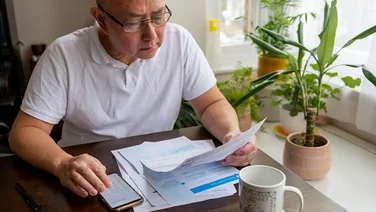We receive a small fee from trusted installers when you request a quote through our site. This helps us keep our content independent, well-researched and up to date – Learn more
- Ofgem is launching a review into cost allocation across the UK energy system
- The Cost Allocation and Recovery Review will reconsider the entire process
- The use of green technology will protect billpayers from volatile fossil fuel prices

Ofgem has launched a major review into UK energy prices with the goal of making them fairer for consumers and to support the roll out of renewable technology, including solar panels and heat pumps.
The regulator said the Cost Allocation and Recovery Review (CAR) will look at the whole energy system from generation to usage, with the ambition to make costs fairer and more efficient, support net-zero and economic growth.
Stakeholders are being asked for their opinion on what new pricing models might look like as part of the review, which would then be subject to future consultation.
Jonathan Brearley, CEO, Ofgem said that serious maintenance and upgrades are required in order for the energy system to keep up as more changes towards a low-carbon future are made.
According to Brearley, domestic and commercial consumers are “changing how they use energy”, such as making more use of off-peak electricity, or using more to charge electric vehicles (EVs).
He explained that heat pumps and solar panels will help “protect billpayers from volatile global fossil fuel prices” by generating clean renewable clean energy.
This means that as the UK transitions to a more secure, homegrown, renewables-based energy system unit costs may decrease as it will be less reliant on gas.
“The shift in the make-up of system costs means we need to review how we pay for energy and carefully consider how these costs are distributed,” he said because energy is taking up “a larger proportion of household bills than it ever has”.
The goal now is to a better system that ensures fixed costs won’t disproportionately affect low income households and lead to fuel poverty,” Brearley continued.
While it’s been made clear by many customers that the current system of a standing charge and unit rate is unfair, there is no consensus on a preferred alternative.
“We know customers have real concerns about fairness and transparency in their bills, especially around fixed costs,” Brearley said. “That’s why we’re asking big questions about how and where these costs are shared – and whether there are better, fairer ways to do it.”
A statement from Ofgem said it was “keen to ensure that we look at bills in the round,” considering all the costs and options available and how these feed through to the consumer.
“We’ll work closely with the government to ensure our respective approaches are not misaligned,” it said.
Brearley echoed this sentiment: “The launch of this review is the next step in developing fairer pricing for a changing energy system, ensuring more choice for consumers while protecting those most in need.”









